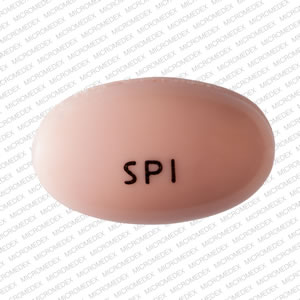Lubiprostone Disease Interactions
There are 4 disease interactions with lubiprostone.
Lubiprostone (applies to lubiprostone) GI obstruction
Major Potential Hazard, Moderate plausibility. Applicable conditions: Gastrointestinal Obstruction
Lubiprostone is contraindicated in patients with known or suspected mechanical gastrointestinal obstruction.
Lubiprostone (applies to lubiprostone) diarrhea
Moderate Potential Hazard, Moderate plausibility. Applicable conditions: Electrolyte Abnormalities
Lubiprostone should not be prescribed to patients that have severe diarrhea. Care should be exercised when prescribing this drug to patients at risk of diarrhea and patients should be instructed to inform their physician if severe diarrhea occurs.
Lubiprostone (applies to lubiprostone) dyspnea
Moderate Potential Hazard, Moderate plausibility. Applicable conditions: Pulmonary Impairment
The use of lubiprostone may cause dyspnea. Care should be taken when prescribing this drug to patients that experienced dyspnea or when restarting the drug in those patients experiencing drug induced dyspnea.
Lubiprostone (applies to lubiprostone) hepatic impairment
Moderate Potential Hazard, Moderate plausibility. Applicable conditions: Liver Disease
No dosage adjustment is needed in patients with mild hepatic impairment. It is recommended to modify the dose in patients with moderate and severe hepatic impairment as these patients experienced markedly higher systemic drug exposure that can cause an increased incidence and severity of adverse events.
Switch to professional interaction data
Lubiprostone drug interactions
There is 1 drug interaction with lubiprostone.
More about lubiprostone
- lubiprostone consumer information
- Check interactions
- Compare alternatives
- Pricing & coupons
- Reviews (281)
- Drug images
- Side effects
- Dosage information
- During pregnancy
- Drug class: chloride channel activators
- Breastfeeding
- En español
Related treatment guides
Drug Interaction Classification
| Highly clinically significant. Avoid combinations; the risk of the interaction outweighs the benefit. | |
| Moderately clinically significant. Usually avoid combinations; use it only under special circumstances. | |
| Minimally clinically significant. Minimize risk; assess risk and consider an alternative drug, take steps to circumvent the interaction risk and/or institute a monitoring plan. | |
| No interaction information available. |
See also:
Further information
Always consult your healthcare provider to ensure the information displayed on this page applies to your personal circumstances.


